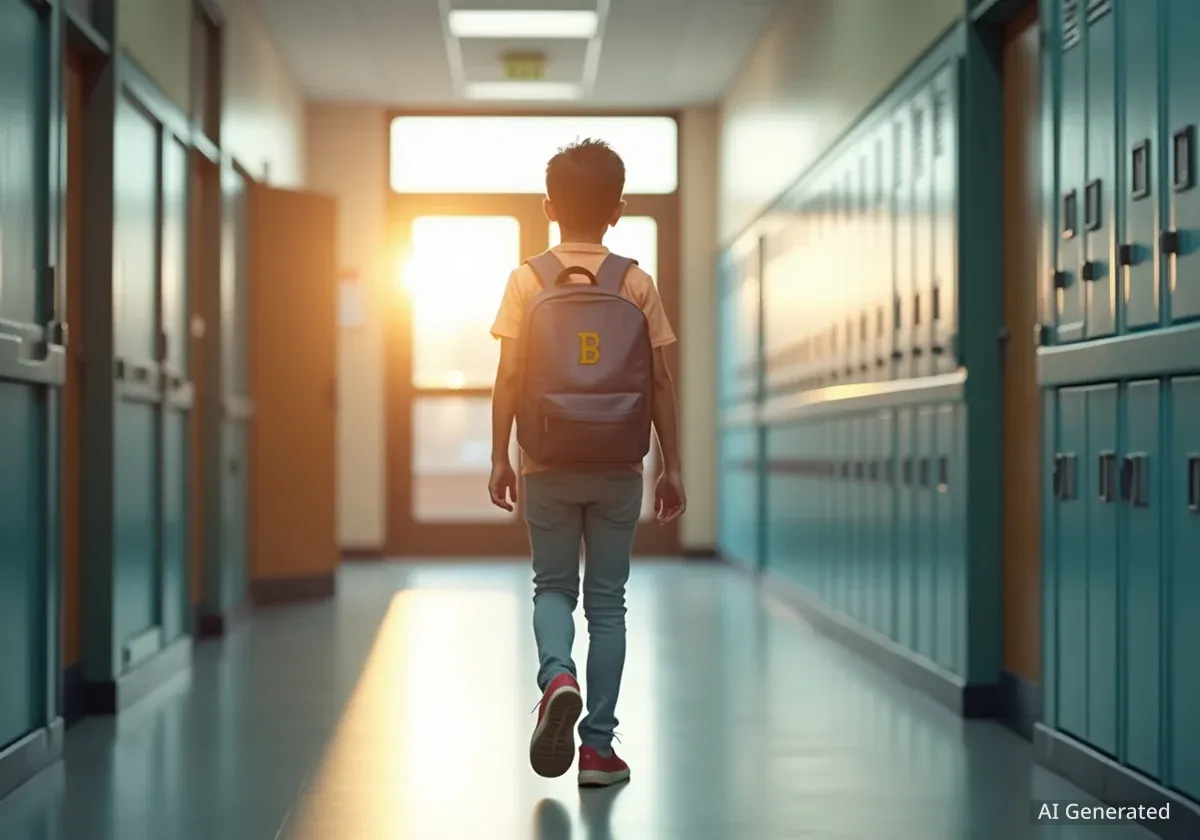Utah's controversial "Utah Fits All" school voucher program is proceeding into its second year, awarding scholarships to over 14,000 students for the 2025–26 school year. The program, which provides public funds for private school tuition and homeschooling costs, is operating with significant changes to its funding structure and spending rules, all while facing a legal battle after a district court judge ruled it unconstitutional.
Key Takeaways
- Over 14,000 students have been awarded scholarships for the 2025-26 school year, an increase from about 10,000 in its first year.
- Funding for homeschooled students has been reduced, with amounts now tiered by age instead of a flat $8,000 scholarship.
- New legislation caps spending on extracurricular and physical education activities at 20% of the total scholarship amount for each category.
- The program is continuing while the state appeals a court ruling that found it unconstitutional.
Program Changes for the 2025-26 School Year
The Utah Fits All program has undergone a major overhaul following its inaugural year. According to Odyssey, the third-party organization managing the program, the number of scholarship recipients has grown to more than 14,000 students. However, the structure of the awards and the rules for spending have been significantly altered.
One of the most substantial changes affects homeschooled children. In the first year, all recipients received a flat $8,000 scholarship. Under the new rules established by HB455, this is no longer the case.
Students attending private schools will continue to receive the full $8,000 award. In contrast, homeschooled students will now receive tiered funding based on age:
- $4,000 for children between the ages of 5 and 11.
- $6,000 for those between 12 and 18 years old.
By the Numbers
About half of the 14,000 recipients for the upcoming school year are homeschooled. Of the roughly 7,500 homeschoolers, approximately 5,000 will receive the $4,000 scholarship, while the remaining 2,500 will receive $6,000, according to data from Odyssey.
New Spending Restrictions Implemented
Lawmakers also introduced new limitations on how scholarship funds can be used. During the 2025 legislative session, concerns were raised that some families were using the entirety of their funds for non-academic purposes.
In response, HB455 now caps spending on extracurricular activities and physical education. Families can use a maximum of 20% of their total scholarship amount for extracurriculars and another 20% for physical education. This change was made to ensure funds were primarily directed toward core educational expenses.
Odyssey officials reported that approximately $40 million has already been spent for the upcoming school year. The most common expenditures are private school tuition, followed by textbooks, curriculum, and other instructional materials.
Shift in Recipient Demographics
The new rules have also led to a significant shift in the makeup of the program's participants. In its first year, lawmakers stated that 80% of the recipients were classified as "home-based learners." For the second year, the split is now roughly 50% homeschooled students and 50% private school students.
Additionally, the income eligibility criteria for priority consideration have been expanded. Initially, priority was given to families with an income at or below 200% of the federal poverty level, which was about $60,000 for a family of four.
The threshold has now been raised to 300% of the federal poverty level, or approximately $96,000 for a family of four. According to Odyssey, this change has resulted in about 70% of new scholarship recipients being from low-income households under the updated definition.
Program's Legislative History
The Utah Fits All program was established in 2023 with an initial budget of $42.5 million, making it the largest school voucher initiative in state history. Due to high demand, the funding was nearly doubled to $82 million in 2024 to support 10,000 students. The total program funding for the 2025-26 school year is now set at $100 million.
Ongoing Constitutional Challenge
Despite its expansion, the Utah Fits All program operates under a cloud of legal uncertainty. The Utah Education Association, the state's largest teachers' union, filed a lawsuit arguing that the program is an unconstitutional use of state income tax revenue.
The lawsuit contends that these funds are specifically reserved for public education, higher education, and services for individuals with disabilities, and cannot be diverted to private education or homeschooling expenses.
In April, Third District Court Judge Laura Scott sided with the plaintiffs, ruling that the voucher program was unconstitutional. Her decision validated the core argument presented by the Utah Education Association.
However, the legal battle is not over. Judge Scott agreed to stay her ruling, which allows the program to continue operating while the state of Utah appeals the decision to a higher court. This legal stay permits the distribution of scholarships for the 2025-26 school year to proceed as planned, though the program's long-term future remains in question pending the outcome of the appeal.
The state maintains that the program provides necessary educational options for families, while opponents argue it diverts critical funding from the public school system. The appeal process will ultimately determine whether Utah's experiment with a large-scale school voucher system can continue.





